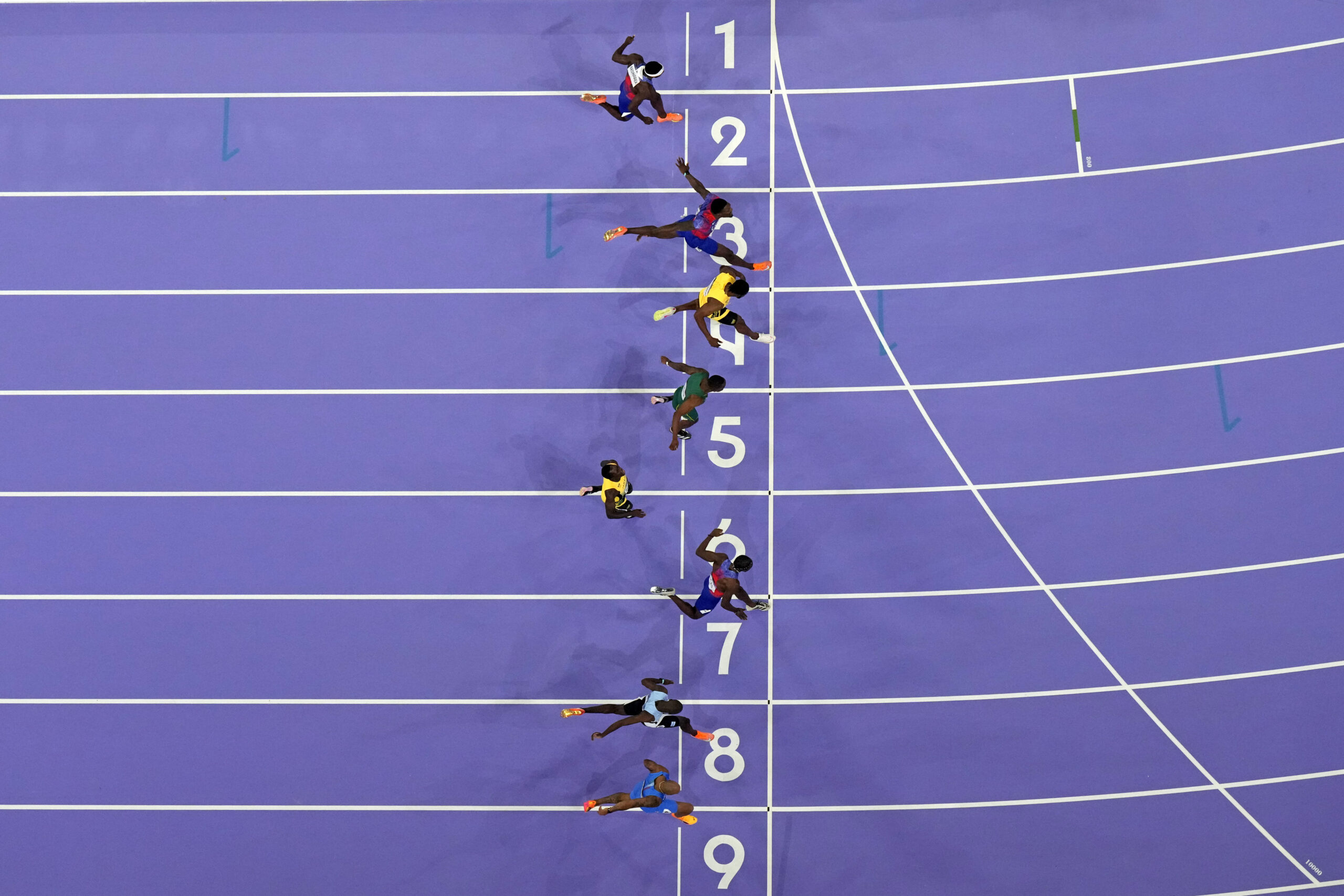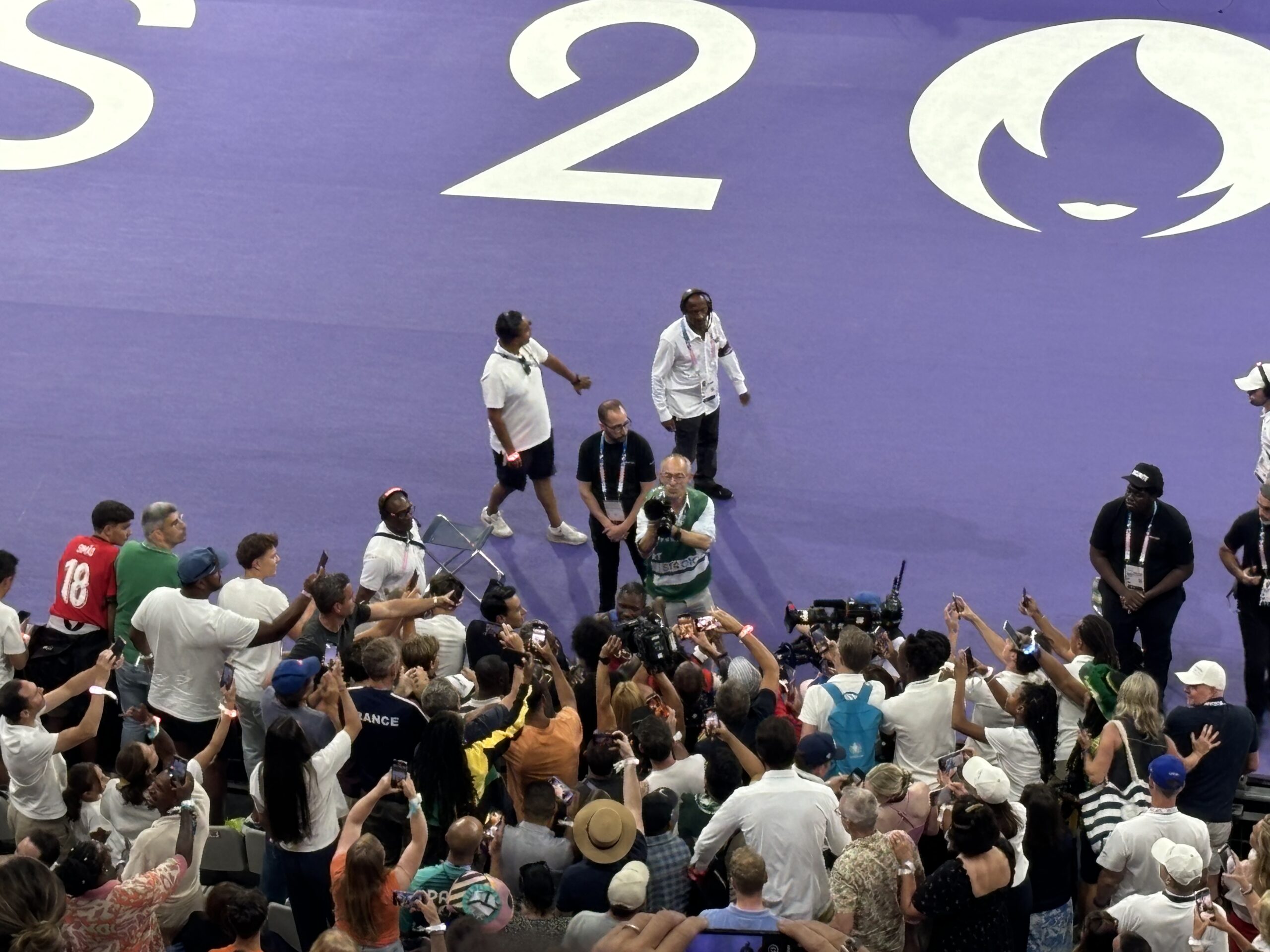
PARIS — Max Siegel cut a relaxed figure on the concourse at the Stade de France in the early evening on Sunday, less than 90 minutes before that night’s session of athletics at the 2024 Olympic Summer Games.
This is the time every four years that USA Track & Field gets more exposure than ever. And the opening two nights were big ones for the national governing body; Grant Fisher had won bronze in the men’s 10,000 meters on Friday. Then on Saturday, Ryan Crouser won his third consecutive gold in the shot put, beating countryman Joe Kovacs, while Sha’carri Richardson led a 2-3 finish for the U.S. women in the 100-meter dash.
Then, Sunday night, it only got better. One of USATF’s biggest superstars, Noah Lyles, won a dramatic men’s 100-meter dash by 0.005 seconds, becoming the first U.S. man to win the event in 20 years and set himself up for a 100-200 sweep. Fred Kerley won the bronze for the U.S. as well, making it already a special Games.
Sponsored Content
“The performance along with the celebrity attracts more casual viewers and attention,” said Siegel, USATF’s chief executive officer for more than a decade. “I’ve seen more activity on social media around performances and the Games and awareness of what they’re doing … the better that the athletes here at the Games, whether they’re part of the U.S. team or not, I think it’s great for the growth of the sport globally.”
After that performance on Sunday, it’s hard to argue that the sport is anything but great. It was a true show from beginning to end with the runners coming out to roars of a capacity crowd that ooh’d and ahh’d at a light show before intros. The buildup itself took seemingly forever, heightening the tension before a race that will go down in Olympic history.
“That crowd was amazing,” Lyles said. “I couldn’t have a better crowd. And waiting that long time before we actually heard that ‘On your marks,’ I was shocked.”
Lyles and Crouser also got more than gold medals. Each won the $50,000 first prize that World Athletics is giving to winners in all 48 Olympic track events, a move that has drawn criticism from other international federations and the International Olympic Committee.
“I’m excited about innovation, I’m excited about putting forth the effort to support the athletes,” Siegel said of the prize money. “I do realize that when you change anything, it’s a bit disruptive. So you just kind of have to ride out the turbulence.”
Another disruption for USATF has been working already ahead of the next Games, in Los Angeles, to broaden the sport’s reach. The NGB last year started a series of marquee events in the summer with meets in Los Angeles, New York and the Caribbean. That is in addition to the annual Prefontaine Classic in Eugene, Oregon, a regular venue for USATF. Siegel also points to indoor facilities spreading throughout the United States in cities such as Louisville and Indianapolis.
“We’ve seen an increased appetite in hosting our events,” he said. “We’re now able to go into a city —I don’t want to mislead anybody to say people are chomping at the bit — but you can have a meaningful discussion saying, ‘Hey, we can bring the masters championships. We can collaborate on some grassroots programs. We can bring some of our more marquee events there.’”

Athletics at LA28 will be held at the Los Angeles Memorial Coliseum, as it was in 1932 and 1984. But in a change from recent tradition, athletics will be in the first half of the Games while swimming flips to the end of the Games to give LA28 time to build a temporary pool at SoFi Stadium after the Opening Ceremony.
Siegel, who last year signed a contract extension with USATF through 2028, said there was an internal study of the idea to move dates for LA28 to ensure a few things were not disturbed, specifically athletic performance and how the calendar may change ahead of the Games.
“Then we asked about commercially, what does that look like?” he said. “Ratings are high at the beginning of the Games. Viewership fatigue kind of takes place. We love the fact that we anchor it and we have an exciting sport (and) we personally don’t see any net negative for going first. And hopefully we can set the bar high, get momentum going and benefit all sports with the flip.”
And given the American record of success in the sport, Sunday could be only the beginning for the rest of the Games and USATF at the unique purple track in Paris.
“Purple is my favorite color,” said Siegel before correcting himself: “purple is my wife’s favorite color.”
Sunday, USA Track & Field’s favorite color was gold.












 Copyright © 2025 by Northstar Travel Media LLC. All Rights Reserved. 301 Route 17 N, Suite 1150, Rutherford, NJ 07070 USA | Telephone: (201) 902-2000
Copyright © 2025 by Northstar Travel Media LLC. All Rights Reserved. 301 Route 17 N, Suite 1150, Rutherford, NJ 07070 USA | Telephone: (201) 902-2000